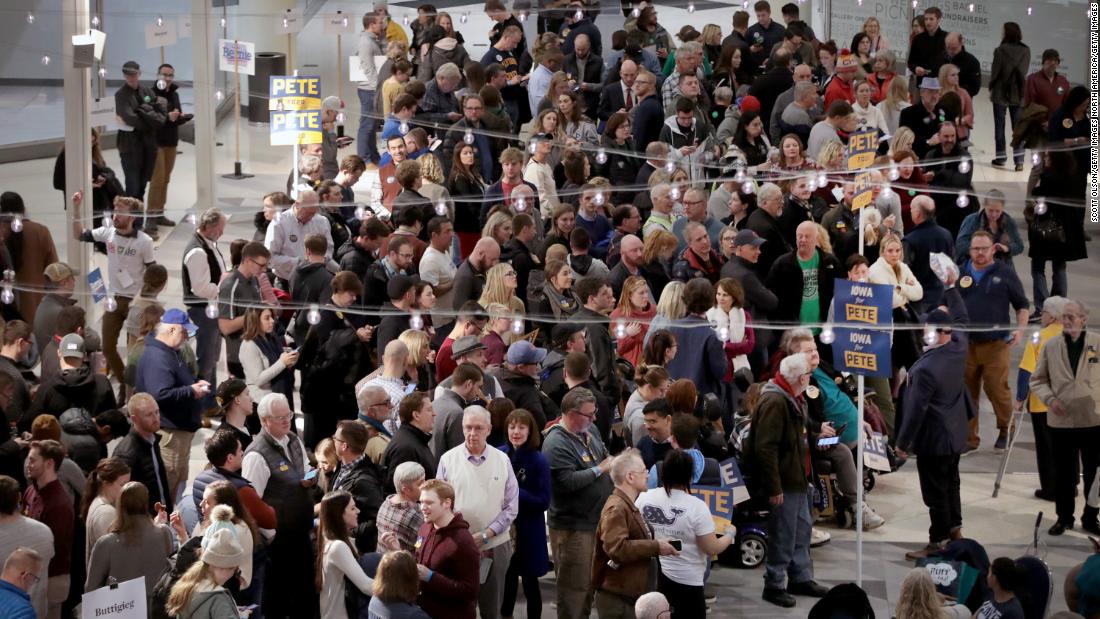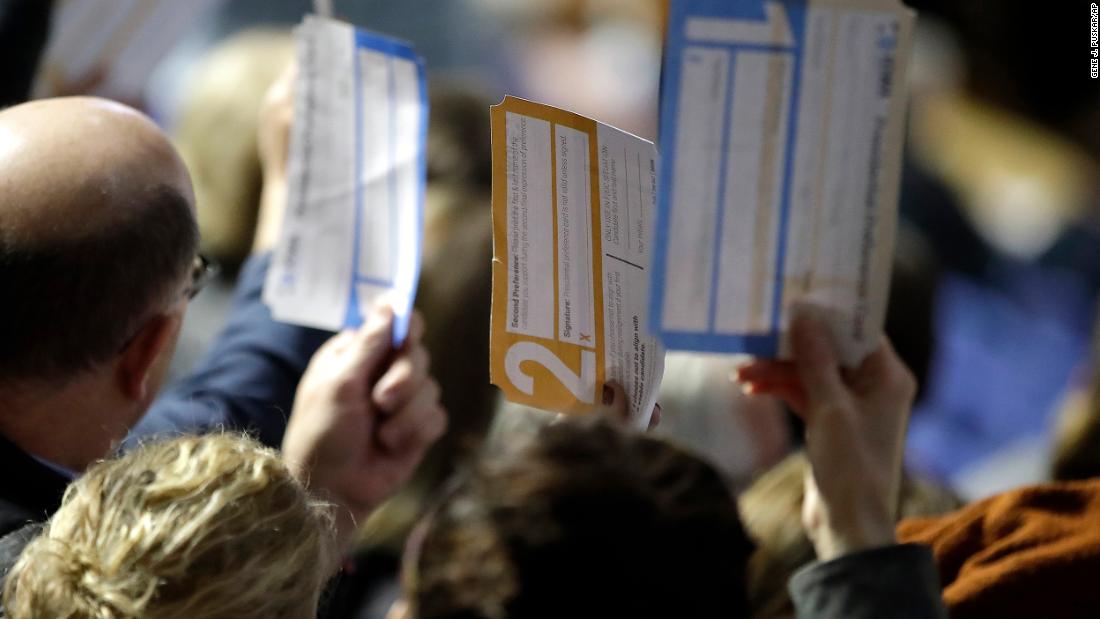[ad_1]

Linda Nelson, the caucus chair of her precinct in Council Bluffs, was among the first to publicly sound the alarm Monday afternoon about concerns with the app used to count Iowa caucuses results.
Nelson said Monday she kept getting an error message when she entered her PIN on the app. She said she planned to do it the old fashioned way, by calling in her results.
That turned out to be impossible, as the phone lines were jammed. She texted a picture of her Caucus Math Sheet to Troy Price, chairman of the Iowa Democratic Party, and went to bed.
Nelson said the Iowa Democratic Party called her just before 1:30 a.m. CT on Tuesday morning, when she was asleep.
“I had to go out to my car, retrieve my materials and shared w/ them totals after both alignments and delegate distribution. They are probably still making calls,” Nelson texted CNN.
A senior Democratic official tells CNN they estimate that about 250 precincts are still outstanding.
Hours after caucusing began Monday, Shawn Sebastian, a precinct secretary in Story County, told CNN’s Wolf Blitzer, “I have been on hold for over an hour with the Iowa Democratic Party. They tried to, I think, promote an app to report the results. The app by all accounts just like doesn’t work, so we’ve been recommended to call into the hot line, and the hot line has not been responsive.”
Sebastian’s call was picked up as he was speaking on-air to Blitzer, but moments later Sebastian said he was hung up on.
Drew Kelley, a vice chair of the Clinton County Democratic Central Committee, told CNN, “I can’t tell you anything about the why, just that I had a busy signal for about 15 minutes, then finally got through and was on hold another hour. Finally through, the worker on the line was extremely helpful.”
Iowa Democratic Party officials hunkered down Monday night in their war room, initially leaving campaigns in the dark over the delay in the reporting of caucus results.
An Iowa Democratic official said results were still being collected overnight. There was no estimated time given to campaigns.
“They literally have no verified results,” a senior campaign adviser said late Monday. “We won’t know anything until some time Tuesday — at least.”
Iowa Democratic Chairman Troy Price was set to hold another conference call Tuesday morning with representatives of the Democratic presidential campaigns.
Price released a statement explaining the inconsistencies in the reports: “Because of the required paper documentation, we have been able to verify that the data recorded in the app and used to calculate State Delegate Equivalents is valid and accurate. Precinct level results are still being reported to the IDP. While our plan is to release results as soon as possible today, our ultimate goal is to ensure that the integrity and accuracy of the process continues to be upheld.”
Officials from two Democratic campaigns tell CNN they were told the app to tabulate results had crashed. They said they had not been given any other information.
Representatives of presidential campaigns were not invited into the state party’s war room, which is standard practice. But as the night wore on without word, one said: “It’s clear that something has gone wrong.”
A state Democratic official who was in the war room said the mood was calm and the officials were committed to get the count right.
“More data takes more time,” the official said.
Iowa Democratic Party Communications Director Mandy McClure said in a statement late Monday that there were no issues about the integrity of the vote despite the delays.
“We found inconsistencies in the reporting of three sets of results,” she said.
“In addition to the tech systems being used to tabulate results, we are also using photos of results and a paper trail to validate that all results match and ensure that we have confidence and accuracy in the numbers we report,” the statement reads.
“This is simply a reporting issue, the app did not go down and this is not a hack or an intrusion. The underlying data and paper trail is sound and will simply take time to further report the results,” the statement reads.
According to former Iowa Democratic Party chair Andy McGuire, the state campaign chair for Sen. Amy Klobuchar, precinct captains were given a six-digit pin that they put in that identifies the precinct captain and allows them to put in the results.
“The app seemed to be working in our precinct,” McGuire said about her Des Moines-area precinct. “I saw him put it in. It seemed to be working just fine.”
She added: “Between there and headquarters, something’s going on.”
But, she said, “The good news here is all this is solidified and backed by paper. We had to sign our results. It’s all on paper.”
Iowa Democrats planned to release more information about caucus results than usual this year. The three sets of numbers expected are the state delegates won, the first alignment, and the second alignment.
Each precinct sends delegates to county conventions, who then send delegates to the state convention. The “state delegate equivalents” are the estimated number of delegates candidates have won to the state convention based on their results in each precinct.
Voting issues aren’t new when it comes to the Iowa caucuses, the state in the last Presidential election in 2016 faced a controversy surrounding apparent confusion about the voting process.
CNN’s Adam Levy contributed to this report.
[ad_2]
Source link

